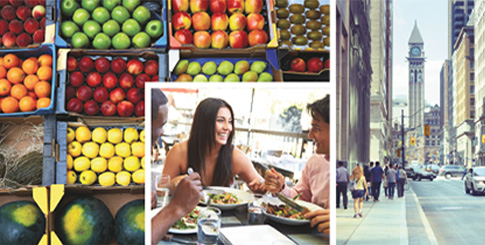Formusa agrees, citing January and February as slow after the frenzy of the holidays, then waiting for winter to end. “A lot of the items we sell here are tropical, and tropical sales are down in the winter—people aren’t necessarily interested in eating a mango when it’s 30 degrees below zero,” he concedes. Luckily, however, he says it always picks up in the spring, and momentum and volume build into the summer months.
Cameron Neale is more guarded. “It’s been a little bit slow this year; it’s hard to say why, but we’re brokers, and I always hear people say it’s not like it used to be. I’m assuming because there’s more direct business and more competition. Sometimes newer people who come into the business buy based on price, not based on relationship.”
Davidson’s view is more upbeat: “Our business has continued to grow year over year, so things have been really good for us. No complaints from a business perspective here.”
What’s ahead
In looking specifically at Ontario and the province’s role in the immediate and greater produce supply chain, Zimmerman has a few thoughts: “Ontario’s agri-food industry is a key economic driver for the province and will play a critical role in its future,” she insists. “With continued consumer education, government support, and investment in research and modern technologies, the future of Ontario’s produce industry is bright.”
Neale mirrors this positivity. “Ontario produce will continue to do well because Canadians are so aware of the benefits of eating healthy,” he stresses. “People are living longer because they eat healthy, and I think produce will continue to be at the center of that trend.”
Images: maxi_kore, Monkey Business Images/Shutterstock.com



